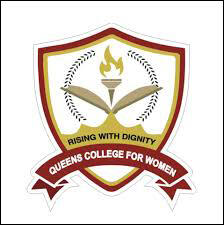Queens College for Women
In 1846 Frederick Denison Maurice and other members of the staff at King's College founded Queen's College for Women in Harley Street. for the higher education of women, particularly of intending governesses, in whose needs his sister Mary, herself a teacher, was interested. Maurice announced that the object of the college was to teach "all branches of female knowledge". This created some controversy as some men thought it was "dangerous" to teach women Mathematics. Maurice replied: "We are aware that our pupils are not likely to advance far in Mathematics, but we believe that if they learn really what they do learn, they will not have got what is dangerous but what is safe." (1)

From the beginning the classes were open to all girls and women above the age of twelve. The college was divided into seniors and juniors, and soon it became necessary to open a preparatory class for younger girls and to offer additional classes in the evening. Fees were charged for each subject according to the number of weekly classes held in it. Education was by a system of lectures and essays. Maurice discouraged competition and allowed neither rewards nor punishments. (2) Charles Kingsley was appointment as professor of English and gave lectures on Anglo-Saxon literature and history. (3)
The first group of students to attend this new training school for teachers included Adelaide Anne Procter, Dorothea Beale, Sophia Jex-Blake and Francis Mary Buss. The feminist historian, Rachael Strachey, has criticised Queen's College because its constitution, was entirely governed by men. However, some important figures that took part in campaign for women's suffrage, received their education from this institution: "They gave encouragement to their secret and half-realised dreams, and Maurice, Kingsley, and their friends, by sanctioning and encouraging these girls, rendered an immense service to the Women's Movement." (4)
Primary Sources
(1) Blanche Athena Clough, A Memoir of Anne Jemima Clough (1897)
Miss Clough became acquainted with Miss Emily Davies and Madame Bodichon. Before long, also, Miss Clough came to know Miss Buss, and she visited and warmly admired her school, already a large and successful one. The movement for obtaining improved education for girls had now been in progress for some years, and important steps had already been taken. Queen's College was founded by the Governesses' Benevolent Institution in 1848, with the help of F. D. Maurice (who became its first Principal) and of other professors of King's College.
(2) In 1848 Frederick Denison Maurice became the first head of Queen's College in Harley Street, a new training school for women teachers. The first group of students included Dorothea Beale, Sophia Jex-Blake and Frances Mary Buss. In his inaugural lecture he explained his ideas on teaching.
The vocation of a teacher is an awful one… she will do others unspeakable harm if she is not aware of its usefulness… How can you give a woman self-respect, how can you win for her the respect of others… Watch closely the first utterances of infancy, the first dawnings of intelligence; how thoughts spring into acts, how acts pass into habits. The study is not worth much if it is not busy about the roots of things.

